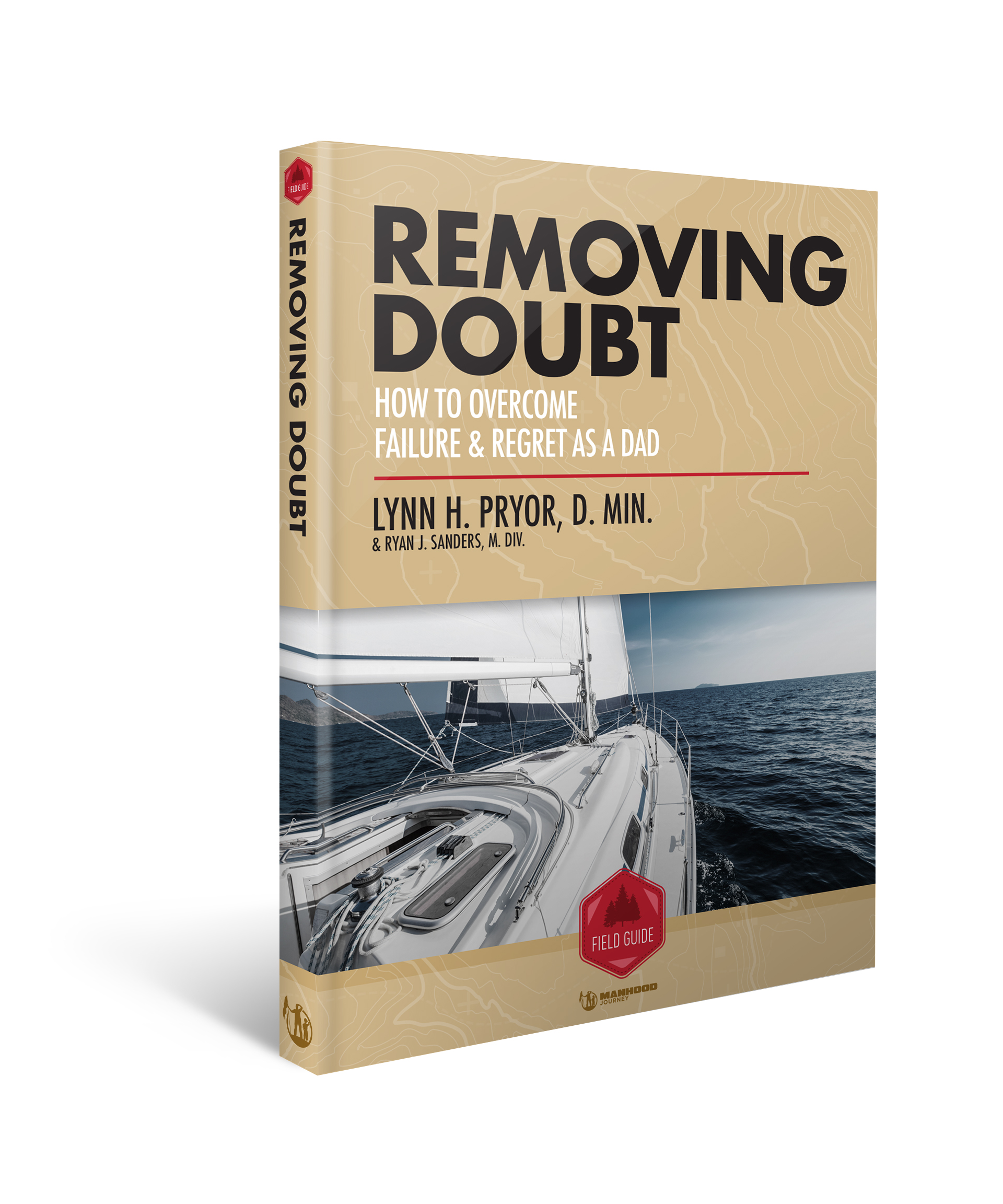Overcoming your mistakes as a dad: 5 key steps
“Man, I’ve really messed up. What’s wrong with me?! Why can’t I control myself? How come I keep making the same mistake?!” Do you recognize that voice? Any chance it could be your own?
I heard that persistent voice every time I messed up as a dad. No matter how big or small, I lived in condemnation. I wanted to be a great dad and loving husband. I also wanted to create a thriving family built on a foundation of faith and love. If you’re reading this post, I imagine you have similar goals.
But as the persistent voice kept telling me—I was falling short. Repeatedly. Having accepted Christ when I was 17, I knew His grace and mercy. I also fully accepted and received forgiveness…intellectually. Emotionally, I struggled to forgive my failures as a dad. Here’s why.

I had a huge wound because of my own dad, and I was determined to change it for my family. Deep in my soul, being a dad was the one thing I wanted to succeed at more than anything. Every time I failed, I felt the weight of my past hurt overshadowing my desire for change. And it was destroying my ability to fully engage as a dad.
If you struggle with similar pain from your past and desire to change, then read on to learn 5 keys to let go of your mistakes, and walk forward into freedom every day.
#1 Recognize your own internal voice
How do you speak to yourself? If it’s like the opening of this post, you’re keeping yourself trapped. To move toward freedom and forgiveness, you must change your internal voice.
If Jesus was sitting and talking with you, what would He say? Imagine the tone of voice, body language, and heart behind His words. Can you picture the depth of love, admiration, and respect coming from His eyes as he looked at you? I guarantee the interaction would be based on His vision of who you’ve been created to be, not your mistake.
Isn’t it time you began speaking to yourself with the affirmations of Jesus’ words?
#2 Become aware of your triggers
For me, the condemnation came when I repeated the mistakes I saw my dad make. I yelled. I got angry. Inevitably, I kept hurting the people that mattered most to me. My heart wanted change, but my habits kept me stuck. When I examined what was happening, there were clear triggers that led to negative emotional habits. If I was disrespected. If my perspective or feelings were disregarded. When life circumstances felt like they were getting out of control.
All of these triggers resulted in immediate negative internal reactions (i.e. bad emotional habits). Depending on the severity, they could keep me in a ‘funk’ for a few hours. At worst, it could be days. Take stock of what happens next time you’re triggered. Assess what events, situations or behaviors contribute to your reactions. Building awareness of these triggers is the starting point for growth, and ultimately making different choices.
“For me, the condemnation came when I repeated the mistakes I saw my dad make.”
#3 Acknowledge and feel your feelings
Recognizing the root of the internal feelings that come when a circumstance triggers you is critical. In Emotional Intelligence 2.0, Dr. Travis Bradberry refers to the ‘emotional hijacking’ that occurs when our emotions override the rational part of our brain.
What happens next can vary from person to person, but too often those emotions get shut down or dismissed. Without properly processing emotions, we never experience the release that comes from acknowledging them. God created us as emotional beings, so choosing to acknowledge and allow ourselves to feel what has happened moves us forward.
{{cta(‘882cdc80-9cea-4133-b56d-16eaaa7968af’,’justifycenter’)}}
#4 Own your recovery
Awareness of the internal voice, triggers and feelings is a powerful starting point. But to move beyond knowledge into application requires action. This is why owning your recovery matters.
“Our actions will show that we belong to the truth, so we will be confident when we stand before God. Even if we feel guilty, God is greater than our feelings, and he knows everything.” —1 John 3:19-20
You must take the steps required to actively and intentionally engage in the above process—as much and as long as it takes to see progress. Starting helps, but finishing transforms. Once you know where you need help, then get moving. Seek advice, engage a friend, find resources, commit to making change. Most importantly, believe you can make the change necessary.
#5 Retrain your thoughts
The question that stopped my destructive self-talk was posed by a coach, “Why are you so hard on yourself?” Simple enough, but it forced me to evaluate what was underneath the critical and negative thoughts I replayed in my mind.
Another shift came after the coach’s next comment “You know, everything you do is a model for your kids. If you’re so hard on yourself, what are you teaching them?” I was stopped in my tracks. The best way for me to help my kids was to retrain my thoughts about myself. In the process, I would begin to model a healthier self-image (based on God’s perspective).
That ‘aha’ moment became the catalyst to stepping into a process that realigned my thoughts and actions with the truth found in Scripture. As Paul said in Romans 8:1-2, “So now there is no condemnation for those who belong to Christ Jesus. And because you belong to him, the power of the life-giving Spirit has freed you from the power of sin that leads to death.”
No matter where you are as a dad, choose to embrace the freedom that comes through faith in Jesus. When you do, you’ll begin to reap the rewards for your life and family.
Question: What about you? Where can you improve? Did any of these hit home? Do other failures come to mind?
Living with regret as a dad? Stop doing that!
We wrote the Field Guide called Removing Doubt: How to Overcome Failure and Regret as a Dad so you can learn to find freedom, overcome failure and lead without regret.
About the author > Drew Soleyn

Like this post and want to write for Manhood Journey? Email Ryan Sanders your post and he’ll either not reply because your idea is that bad—or he’ll assign you a deadline.













